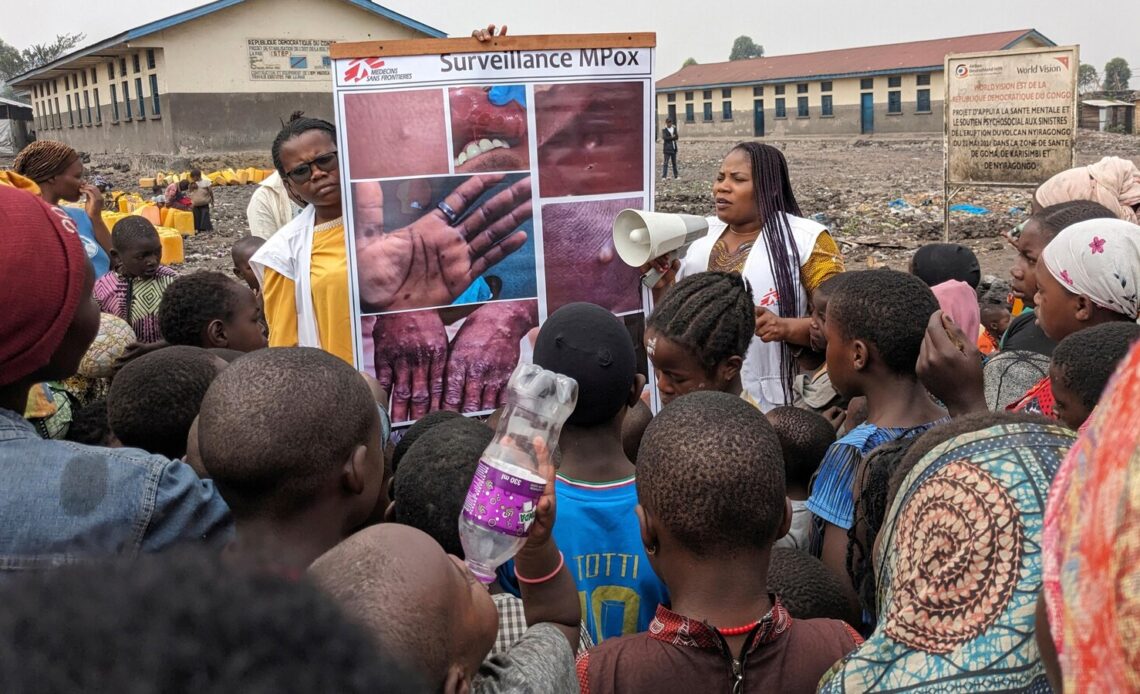LONDON — The World Health Organization has declared the mpox outbreaks in Congo and elsewhere in Africa a global emergency, with cases confirmed among children and adults in more than a dozen countries and a new form of the virus spreading. Few vaccine doses are available on the continent.
Earlier this week, the Africa Centers for Disease Control and Prevention announced that the mpox outbreaks were a public health emergency, with more than 500 deaths, and called for international help to stop the virus’ spread.
“This is something that should concern us all … The potential for further spread within Africa and beyond is very worrying,” said WHO director-general Tedros Adhanom Ghebreyesus.
The Africa CDC previously said mpox, also known as monkeypox, has been detected in 13 countries this year, and more than 96% of all cases and deaths are in Congo. Cases are up 160% and deaths are up 19% compared with the same period last year. So far, there have been more than 14,000 cases and 524 people have died.
“We are now in a situation where (mpox) poses a risk to many more neighbors in and around central Africa,” said Salim Abdool Karim, a South African infectious diseases expert who chairs the Africa CDC emergency group. He said the new version of mpox spreading from Congo appears to have a death rate of about 3-4%.
In 2022, WHO declared mpox to be a global emergency after it spread to more than 70 countries that had not previously reported mpox, mostly affecting gay and bisexual men. In that outbreak, fewer than 1% of people died.
Michael Marks, a professor of medicine at the London School of Hygiene and Tropical Medicine, said declaring these latest mpox outbreaks in Africa an emergency is warranted if that might lead to more support to contain them.
“It’s a failure of the global community that things had to get this bad to release the resources needed,” he said.
Officials at the Africa CDC said nearly 70% of cases in Congo are in children younger than 15, who also accounted for 85% of deaths.
Jacques Alonda, an epidemiologist working in Congo with international charities, said he and other experts were particularly worried about the spread of mpox in camps for refugees in the country’s conflict-ridden east.
“The worst case I’ve seen is that of a six-week-old baby who was just two weeks old when he contracted mpox,” Alonda said, adding the baby has been in their care for a month. “He got infected because hospital overcrowding meant he and…
Click Here to Read the Full Original Article at ABC News: Health…

